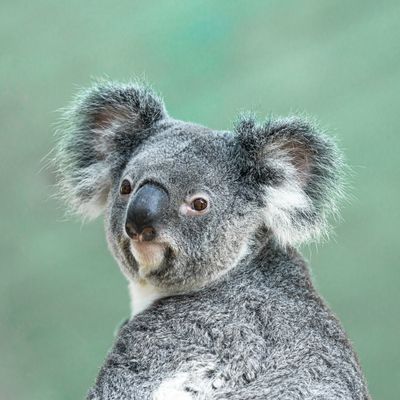
The last few years have taken a harsh toll on koalas. In 2019, koala populations were devastated by rampant Australian bushfires, which destroyed roughly 80 percent of their natural habitat and killed, injured, or otherwise affected over 60,000 koalas. The devastation was so prolific, the species was classified as “functionally extinct.” In 2020, the WWF nominated koalas as an endangered species and emphasized that it wasn’t too late to conserve their populations. Recent Australian conservation efforts have included rehabilitation and research, including counting the number of surviving koalas with the help of drones and detector dogs. (Also, who can forget the time that a bike rider in Adelaide gave a thirsty koala a drink from her water bottle? Not me!)
Sadly, on Friday, the Australian government declared koalas an endangered species across three states: New South Wales, Queensland, and the Australian Capital Territory. (Previously, koalas in these states were classified as vulnerable). In addition to the bushfires, a number of long-term ecological factors — including drought, disease, and habitat loss — were cited as contributing factors in koala decline.
What does this reclassification mean exactly? Well, according to Deborah Tabart, chairwoman of the Australian Koala Foundation, essentially “nothing.” Per the Times, an endangered qualification doesn’t require any government action. Still, the country’s environmental department has said it will adopt a recovery plan for the koalas. The Australian government has financially invested in koala protection and conservation in the past: Last month, Prime Minister Scott Morrison pledged the equivalent of $35.7 million to restore koala habitats to be spent over the course of four years. (Conservationists criticized the pledge as a “drop in the ocean” and said it didn’t address the root causes of koala decline).
Many Australian welfare groups remain skeptical of the government’s current koala-protection efforts, arguing that it’s neglected to address many of the pressing threats to koala habitats, namely deforestation and land clearing. While the government “may be offering our koalas a nice new world,” Tabart says, “behind all the photo opportunities and political rhetoric, they continue to approve the destruction of the koala habitat. If the clearing of the koala habitat continues, a further status change is imminent — from endangered to extinct.”
To which I say: Please save these fluffy and cute land gremlins from extinction! They deserve more. Exactly how many koalas remain is unclear because they sleep 20 hours a day (relatable) and don’t move much (even more relatable) and so are notoriously difficult to count.





